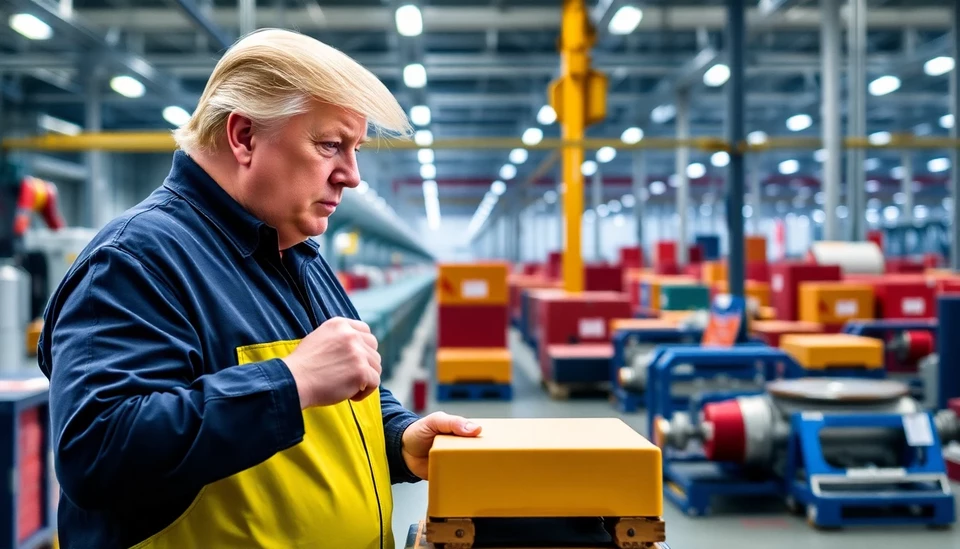
In a significant shift in the manufacturing landscape, U.S. manufacturers are sharply accelerating their production efforts in response to looming tariffs imposed under the Trump administration. With a focus on staying competitive amid potential financial penalties on materials sourced from Mexico and Canada, American companies are now racing against the clock to enhance their capabilities and avoid additional fees.
The tariffs, introduced by the former president as part of his broader strategy to support domestic industries, have catalyzed a proactive approach within the manufacturing sector. Companies are scrambling to adjust their supply chains, ramp up domestic production, and ensure that they remain compliant with the evolving trade landscape.
Manufacturers from various sectors are reporting a marked increase in demand for domestically produced goods, as businesses look to mitigate the expenses associated with tariff changes. This trend highlights a pivot towards self-sufficiency and is reflective of broader economic sentiments favoring in-house production. Notably, firms that are traditionally reliant on imports are now investing in local manufacturing facilities, providing a boost to the U.S. economy.
Industry analysts suggest that this quick pivot has resulted in a positive ripple effect across many American communities, leading to job creation as manufacturers look to hire additional personnel to meet increasing production demands. This has been particularly evident in sectors such as automotive and technology, where companies are heavily investing in U.S. operations to leverage lower costs and avoid tariffs.
Furthermore, as the manufacturing landscape continues to evolve, experts caution that understanding the implications of international trade agreements will be crucial for U.S. companies. The ongoing adjustments to tariffs not only affect pricing but also impact long-term strategic planning within organizations. As such, companies are urged to remain agile and responsive to ensure that they can navigate these complexities effectively.
In conclusion, the tariffs initiated during the Trump administration have set off a chain reaction among U.S. manufacturers, prompting an urgent review of operations and strategies. As businesses adapt to the realities of increased costs linked to foreign sourcing, the focus on domestic production is likely to reshape the manufacturing sector in the years to come.
#TrumpTariffs #USManufacturing #TradePolicy #Economy #JobCreation #SupplyChain #DomesticProduction
Author: Laura Mitchell




